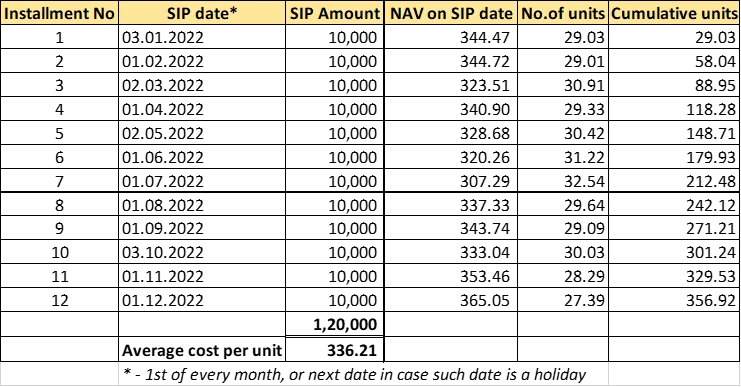SIP stands for Systematic Investment Plan. It is a mode of investing in mutual funds, wherein investors invest pre-determined sums of money at regular intervals in a chosen mutual fund scheme. The frequency of investing can be at your discretion – weekly, monthly or quarterly. It is a disciplined way of investing in mutual funds.
-
Our Products
Our FundsFocus Funds
-
Self Care
Self-ServiceFind InformationWays To TransactPartner Solutions
-
Downloads
- Learnings
- About Us
-
More
-
Shareholders
-
Shareholders
-
-
SIP Calculators
- Back
-
Shareholders






 1800-270-7000
1800-270-7000






